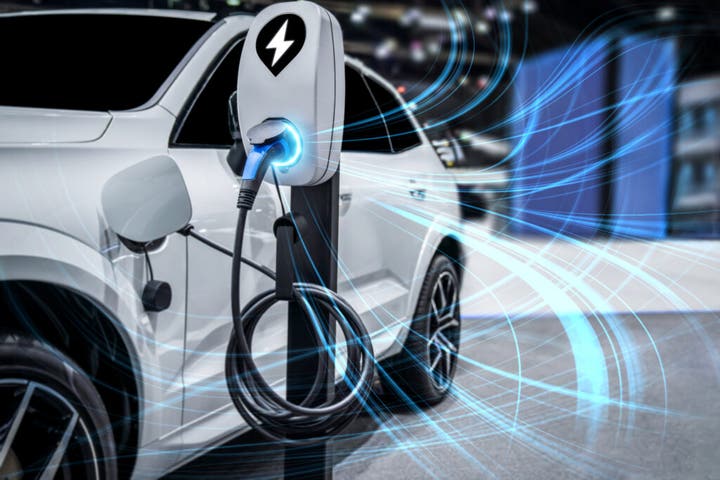Death Of EVs Or Rise Of Hybrids? Expert Says 'Better Narrative Is The Death Of The Explosive Growth' Tesla, Toyota, Benzinga, Jim Cramer, Ford Motor, VW (Volkswagen), CNBC's "Last Call", GM (General Motors) by https://www.benzinga.com/

AI Insights:
Simple Explanation:
A person who knows a lot about cars says that people are not buying as many electric cars (EVs) as they used to. He thinks this is because there are better incentives, or rewards, for regular cars and hybrid cars than for electric cars. Hybrid cars use both gas and electricity to work, which makes them cheaper and easier for people to use. The person also says that car companies like Ford and Toyota, who make a lot of hybrid cars, will do well because of this. Read from source...
Critical Perspective:
1. The title of the article is misleading and sensationalized. It implies that either EVs are dying or hybrids are rising, but not both at the same time. This creates a false dichotomy and oversimplifies the complex reality of the automobile market. A better title would be "The Changing Landscape Of The Automobile Industry: EVs, Hybrids, And ICE Vehicles".
2. The article relies heavily on one expert's opinion, without providing any evidence or data to support his claims. This makes the article vulnerable to confirmation bias and anecdotal fallacies. A more rigorous approach would be to present a balanced view of different experts, studies, and trends in the industry.
3. The expert's argument that hybrids are more cost-effective than EVs is not backed up by any calculations or comparisons. He also assumes that consumer preferences and habits are static, when in fact they are influenced by many factors such as technology, innovation, environmental awareness, and government policies. A nuanced analysis would consider these variables and how they affect the choice between EVs and hybrids.
4. The expert's claim that automakers who pivot to electric will suffer is also unsubstantiated and speculative. He does not explain why or how this would happen, or provide any examples of such cases. He seems to ignore the potential benefits of electric vehicles for both consumers and society, such as reduced emissions, lower fuel costs, and increased energy security. A more holistic perspective would weigh these factors against the challenges and risks of transitioning to electric mobility.
5. The article ends with a mention of Tesla's stock performance, which is irrelevant and distracting from the main topic. It also implies that Tesla is the only player in the EV market, which is false and misleading. A more relevant conclusion would summarize the key points of the discussion and leave room for further debate and exploration of the automobile industry's future.
Investment Analysis:
We are not financial advisors. It's always essential for you to consult with a financial advisor and do your research before making any decisions about investments.
There is no definitive answer to whether EVs or hybrids will dominate the market in the long run, as both have their advantages and disadvantages. However, based on the article provided, it seems that hybrids are currently enjoying a surge in demand and popularity among consumers, who appreciate their cost-effectiveness and flexibility. Therefore, one possible investment recommendation is to consider buying stocks of companies that produce or sell hybrid vehicles, such as Toyota (NYSE:TM) or Ford (NYSE:F), which was mentioned in the article. However, this does not necessarily mean that these stocks are risk-free, as there may be other factors affecting their performance and valuation, such as competition, regulation, innovation, and consumer preferences. Additionally, it is important to diversify your portfolio across different sectors and asset classes, and to monitor the market trends and news closely. Therefore, another possible investment recommendation is to consider using a managed portfolio service or an exchange-traded fund (ETF) that tracks the performance of the automotive industry or the hybrid vehicle segment, which can provide exposure to multiple companies and reduce your risk and cost. However, these products also have fees and expenses associated with them, and may not match your desired level of risk or return. Therefore, you should consult a professional financial advisor before making any investment decisions, and do your own research and due diligence on the companies and products mentioned in this article.